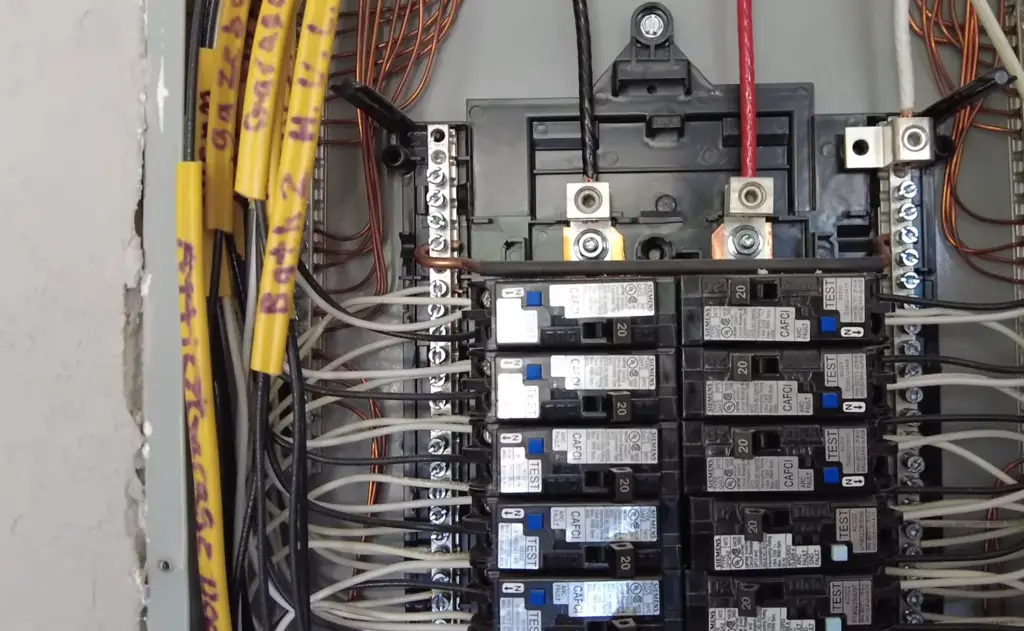As the demand for electricity continues to grow, electricians remain essential to the functioning of homes, businesses, and industries.
In Florida, electricians are in high demand due to the state’s rapidly growing population and construction industry. As such, the question of how much electricians make in Florida is a common one. The answer, however, is not straightforward. Electrician salaries in Florida can vary widely depending on a number of factors, including experience, education, certification, industry, and location.
In this article, we will explore the various factors that impact electrician salaries in Florida and provide an overview of the average salaries for electricians in different regions of the state.
Electricians play a crucial role in ensuring that homes, businesses, and industries have reliable and safe electrical systems. In Florida, electricians are in high demand due to the state’s growing population and construction industry. In this article, we will explore the electrician career in Florida, including job opportunities, job growth, education requirements, and salaries.
Job Opportunities
Electricians can work in a variety of settings, including residential, commercial, and industrial. Residential electricians primarily work on homes, while commercial and industrial electricians work on large buildings and factories. In Florida, there are many job opportunities for electricians due to the state’s growing population and construction industry.
According to the Bureau of Labor Statistics (BLS), there were approximately 30,710 electricians employed in Florida as of May 2022 [1]. The BLS also reports that the top industries employing electricians in Florida are electrical contractors and other wiring installation contractors, followed by building equipment contractors and local government.
Additionally, there are opportunities for electricians to work in specialized fields, such as renewable energy, automation and control systems, and security systems. With the increasing demand for renewable energy sources, electricians who specialize in solar and wind power installations are in high demand. Similarly, automation and control systems are becoming more prevalent in industrial settings, creating opportunities for electricians with this skill set.

Job Growth
The demand for electricians in Florida is expected to continue to grow in the coming years. The BLS projects that the employment of electricians in Florida will increase by 12.4% from 2019 to 2029, which is faster than the average for all occupations. This growth is due to several factors, including the state’s growing population and construction industry, the need for infrastructure updates and repairs, and the increasing demand for renewable energy sources.
Education and Training Requirements
Apprenticeships typically last four to five years and include both classroom instruction and on-the-job training. Vocational school programs, on the other hand, offer a shorter and more focused education in electrical theory and practical skills.
In addition to completing an apprenticeship or vocational school program, electricians in Florida must also obtain a license from the Florida Department of Business and Professional Regulation. To obtain a license, individuals must pass a state-approved exam that tests their knowledge of electrical theory, codes, and regulations.
Continuing education is also important for electricians in Florida. To maintain their licenses, electricians must complete 14 hours of continuing education every two years. This education can include courses on new technologies, safety procedures, and changes to electrical codes and regulations [2].
Pros Of Becoming An Electrician
Benefits
One of the biggest pros of becoming an electrician is the wide range of benefits that come with the job. Many electricians receive comprehensive benefits packages, which may include health insurance, retirement plans, and paid time off. These benefits can provide financial security and stability, which is especially important for those who work in the construction industry, where work may not always be steady.

In addition to traditional benefits, some electricians may also have access to unique perks, such as tool allowances, company vehicles, and continuing education opportunities. These perks can help electricians stay up-to-date with the latest technology and advancements in the field, which can make them more valuable to employers.
Perks
In addition to benefits, electricians also enjoy a range of job perks that make the work more enjoyable and rewarding. For example, electricians get to work with their hands, which can be satisfying for those who enjoy physical work. They also get to see the fruits of their labor, as they install and repair electrical systems that make buildings functional and safe.
Electricians also have the opportunity to work on a variety of projects in different industries, such as construction, manufacturing, and utilities. This variety can keep the job interesting and challenging, as electricians must adapt to different environments and situations.
Protection
Another pro of becoming an electrician is the job protection that comes with the profession. Electricians are in high demand, and the job outlook for the field is expected to grow faster than the average for all occupations. This means that electricians are likely to have job security, even during times of economic uncertainty.
Electricians also have the advantage of working in a trade that is difficult to outsource or automate. Electrical systems require physical installation and maintenance, which cannot be done remotely or by machines. This means that electricians are likely to have a long-term career path that is not at risk of being replaced by technology.
Schedule
Another pro of becoming an electrician is the flexibility of the work schedule. Many electricians work full-time, but they also have the option to work part-time or on a contract basis. This flexibility can be beneficial for those who want to balance work with other responsibilities, such as family obligations or continuing education.
Electricians also have the opportunity to work different shifts, which can be helpful for those who prefer to work early mornings, evenings, or overnight. This flexibility can also be beneficial for those who need to work around other commitments, such as attending school or caring for a family member.
Prominent Electrician Employers
In addition to the many benefits and perks of becoming an electrician, there are also a number of prominent employers who regularly hire electricians. These employers often offer competitive salaries and benefits packages, as well as opportunities for advancement and continued education.
One such employer is the United States government, which employs thousands of electricians in a variety of capacities. The government hires electricians to work in a number of different agencies, including the Department of Defense, the Department of Veterans Affairs, and the National Aeronautics and Space Administration (NASA). Electricians who work for the government may also be eligible for additional benefits, such as healthcare and retirement plans.
Another prominent employer of electricians is the construction industry. Electricians are a vital part of any construction project and are responsible for ensuring that electrical systems are installed safely and correctly. Construction companies often hire electricians to work on large-scale projects such as office buildings, hospitals, and schools.
Many electricians also find employment with electrical contractors. Electrical contractors are companies that specialize in electrical work and typically hire electricians to work on a wide range of projects. These projects may include everything from residential installations to commercial buildings and industrial facilities.
Finally, some electricians choose to start their own businesses and work as independent contractors. This can be a rewarding option for electricians who enjoy being their own boss and setting their own schedule. However, it’s important to note that running a successful business requires a significant amount of dedication, hard work, and business acumen.
There are many prominent employers in the electrician field, ranging from small businesses to large corporations.
Some of the most well-known employers include:
- IBEW: The International Brotherhood of Electrical Workers is a labor union that represents more than 750,000 electrical workers in the US and Canada. IBEW members have access to training and apprenticeship programs, job security, and competitive wages;
- NECA: The National Electrical Contractors Association represents more than 4,000 electrical contractors in the US. NECA members have access to resources such as education and training programs, safety programs, and networking opportunities;
- Electrical construction and maintenance companies: There are many companies that specialize in electrical construction and maintenance, such as Dynalectric, Rosendin Electric, and Power Design. These companies offer a range of services, from installation and maintenance [3];

How Much Does It Cost To Become An Electrician
High School Education Or Equivalent
Before pursuing a career as an electrician, it’s important to have a high school education or equivalent, such as a GED. This is a requirement for most apprenticeship programs and postsecondary education programs. The cost of a high school education can vary depending on whether you attend a public or private school, and whether you live in a rural or urban area. On average, the cost of a high school education in the United States ranges from $9,000 to $12,000 per year.
Postsecondary Education
While post-secondary education is not always required to become an electrician, it can be a valuable asset when seeking employment and may lead to higher salaries. Community colleges and technical schools offer electrical programs that can range from a few months to two years. The cost of these programs can vary greatly depending on the institution, location, and length of the program. On average, the cost of a two-year electrical program ranges from $6,000 to $20,000.
Apprenticeship
An apprenticeship is a combination of on-the-job training and classroom instruction that can last anywhere from three to five years. Apprenticeships are typically sponsored by unions or industry associations and can be a great way to gain real-world experience while earning a living wage. The cost of an apprenticeship can vary depending on the program, but apprentices can expect to earn a wage that increases over time as they gain more experience.
Tools And Equipment
Electricians require a variety of tools and equipment to perform their jobs safely and effectively. These tools can include wire cutters, pliers, screwdrivers, and more. The cost of tools and equipment can vary depending on the quality of the items and the brand. On average, the cost of tools and equipment for an electrician can range from $1,000 to $5,000.
Licensing
In order to work as an electrician, you’ll need to obtain a license from your state or local licensing board. The cost of obtaining a license can vary depending on the state and the type of license you’re seeking. Licensing fees typically range from $50 to $500, and some states may require additional fees for exams and continuing education courses.
Continuing Education
Continuing education is important for electricians to stay up-to-date with the latest codes and regulations in their field. The cost of continuing education courses can vary depending on the institution and the course itself. On average, the cost of continuing education courses for electricians can range from $50 to $500 per course.
Union Dues
If you choose to join a union as an electrician, you’ll be required to pay union dues. Union dues can vary depending on the union and the region, but they typically range from 1% to 2% of an electrician’s wages.

Average Hourly Rate For Electricians
Average Rate By State
According to the Bureau of Labor Statistics (BLS), the median hourly wage for electricians in the United States is $27.11, which translates to an annual salary of approximately $56,000. However, this figure varies based on factors such as experience, industry, and location. The BLS reports that electricians working in the construction industry earn the highest wages, with a median hourly wage of $29.82.
Those working in the manufacturing industry and local government agencies also earn relatively high wages, with median hourly wages of $28.27 and $27.30, respectively.
The average hourly rate for electricians varies significantly by state. For example, electricians in Alaska, Hawaii, and Illinois earn the highest wages, with hourly rates of $40.96, $36.83, and $36.58, respectively. On the other hand, electricians in Arkansas, Mississippi, and Kentucky earn the lowest wages, with hourly rates of $20.70, $21.32, and $22.16, respectively. However, it is worth noting that the cost of living and other factors also play a role in the hourly rate for electricians in different states [4].
Salary Range For Electricians
The salary range for electricians can vary greatly based on experience and other factors. Entry-level electricians typically earn between $14 and $23 per hour, while those with more experience can earn up to $40 per hour or more. Electricians who specialize in a particular area, such as industrial or commercial electrical work, may also command higher salaries.
Electrician Salary Range By State
The electrician salary range by the state also varies widely. For example, the median hourly wage for electricians in California is $33.36, while electricians in Texas earn a median hourly wage of $23.05. Electricians in New York, Florida, and Pennsylvania also earn relatively high wages, with median hourly wages of $32.52, $23.26, and $28.45, respectively.

Cities With The Highest Electrician Salaries In Each State
Alabama – Birmingham
The average hourly wage for electricians in Birmingham, Alabama, is $25.34, making it the city with the highest electrician salaries in the state.
Alaska – Anchorage
Anchorage, Alaska, is the city with the highest electrician salaries in the state, with an average hourly rate of $37.50.
Arizona – Phoenix
Phoenix is the largest city in Arizona and has the highest electrician salaries, with an average hourly wage of $24.53.
Arkansas – Little Rock
Little Rock is the most populous city in Arkansas and has the highest electrician salaries in the state, with an average hourly rate of $21.22.
California – San Francisco
San Francisco, California, has the highest electrician salaries in the state, with an average hourly wage of $47.57. However, the cost of living in the city is relatively high.
Colorado – Boulder
Boulder, Colorado, is known for its high salaries across different professions, and electricians are no exception. The average hourly wage for electricians in Boulder is $28.03.
Connecticut – Stamford
Stamford, Connecticut, is the city with the highest electrician salaries in the state, with an average hourly rate of $28.48.
Delaware – Wilmington
Wilmington, Delaware, has the highest electrician salaries in the state, with an average hourly wage of $27.53.
Florida – West Palm Beach
West Palm Beach, Florida, has the highest electrician salaries in the state, with an average hourly rate of $21.82.
Georgia – Atlanta
Atlanta, Georgia, is the city with the highest electrician salaries in the state, with an average hourly wage of $22.82.
Hawaii – Urban Honolulu
Urban Honolulu is the largest city in Hawaii and has the highest electrician salaries in the state, with an average hourly rate of $31.08.
Idaho – Coeur d’Alene
Coeur d’Alene, Idaho, is the city with the highest electrician salaries in the state, with an average hourly wage of $24.73.
Illinois – Chicago
Chicago, Illinois, is the largest city in the state and has the highest electrician salaries, with an average hourly rate of $30.61.
Indiana – Indianapolis
Indianapolis, Indiana, has the highest electrician salaries in the state, with an average hourly wage of $25.76.

Iowa – Cedar Rapids
Cedar Rapids, Iowa, has the highest electrician salaries in the state, with an average hourly rate of $25.32.
Kansas – Topeka
Topeka, Kansas, is the city with the highest electrician salaries in the state, with an average hourly wage of $24.23.
Kentucky – Louisville
Louisville, Kentucky, has the highest electrician salaries in the state, with an average hourly rate of $24.16.
Louisiana – New Orleans
New Orleans, Louisiana, has the highest electrician salaries in the state, with an average hourly wage of $24.75.
New York
In New York, the city with the highest electrician salaries in Long Island City, with an average hourly rate of $37.48. This is followed closely by New York City, which has an average hourly rate of $36.66.
North Carolina
The city with the highest electrician salaries in North Carolina is Raleigh, with an average hourly rate of $23.88. This is significantly higher than the state average of $20.68 per hour.
Ohio
In Ohio, the city with the highest electrician salaries in Cincinnati, with an average hourly rate of $28.47. This is slightly higher than the state average of $27.04 per hour.
Oklahoma
The city with the highest electrician salaries in Oklahoma is Tulsa, with an average hourly rate of $22.50. This is higher than the state average of $20.71 per hour.
Pennsylvania
In Pennsylvania, the city with the highest electrician salaries in Philadelphia, with an average hourly rate of $27.55. This is significantly higher than the state average of $25.16 per hour.
Texas
The city with the highest electrician salaries in Texas is Houston, with an average hourly rate of $23.80. This is slightly higher than the state average of $22.94 per hour.
Virginia
In Virginia, the city with the highest electrician salaries is Alexandria, with an average hourly rate of $27.76. This is significantly higher than the state average of $24.63 per hour.
Washington
The city with the highest electrician salaries in Washington is Seattle, with an average hourly rate of $33.31. This is significantly higher than the state average of $30.31 per hour.
Wisconsin
In Wisconsin, the city with the highest electrician salaries in Madison, with an average hourly rate of $28.56. This is slightly higher than the state average of $27.01 per hour.
Wyoming
The city with the highest electrician salaries in Wyoming is Cheyenne, with an average hourly rate of $27.58. This is significantly higher than the state average of $24.14 per hour [5].

Salary Prospects for Self-Employed Electricians
The salary prospects for self-employed electricians can vary widely depending on several factors, including location, experience, and business savvy.
According to data from the Bureau of Labor Statistics (BLS), the median annual income for self-employed electricians in the United States is around $70,000. However, this number can range from as low as $35,000 for those just starting to over $150,000 for those who have established a successful business over time.
One of the advantages of self-employment is the ability to set your rates, which can be higher than the rates offered by employers. However, it’s essential to price your services competitively while still ensuring you make a profit. It’s also crucial to factor in business expenses, such as advertising, tools, and supplies, into your pricing.
Location is also a critical factor in determining salary prospects for self-employed electricians. Urban areas typically offer more opportunities and higher rates compared to rural areas. For example, in New York City, self-employed electricians can earn over $100 per hour, while in a more rural area like Mississippi, the average rate is around $40 per hour.
Experience also plays a significant role in determining salary prospects for self-employed electricians. As with any industry, those with more experience and expertise can charge higher rates for their services. Establishing a good reputation and building a loyal customer base can also help increase earning potential over time.
It’s also essential to remember that self-employment comes with additional expenses, such as taxes, insurance, and other business-related costs. These expenses can eat into profits, making it critical to factor them into your pricing strategy and budget accordingly.

Salary Changes Per Type Of Electrician Career
The salary of an electrician can vary based on the type of career they pursue within the field.
Here are some examples of the salary changes per type of electrician career:
- Residential Electricians: Residential electricians typically work in homes, apartments, and other residential buildings. Their duties include installing and repairing electrical systems, wiring, and fixtures. According to the Bureau of Labor Statistics, the median annual wage for residential electricians is around $56,000, with the top 10% earning over $92,000;
- Commercial Electricians: Commercial electricians work in commercial buildings, such as offices, retail stores, and restaurants. They install and maintain electrical systems, including lighting, power, and control systems. According to the Bureau of Labor Statistics, the median annual wage for commercial electricians is around $57,000, with the top 10% earning over $92,000;
- Industrial Electricians: Industrial electricians work in factories, plants, and other industrial settings. They install and maintain machinery, as well as power and control systems. According to the Bureau of Labor Statistics, the median annual wage for industrial electricians is around $56,000, with the top 10% earning over $91,000;
- Maintenance Electricians: Maintenance electricians work in a variety of settings, including residential, commercial, and industrial environments. Their duties include troubleshooting and repairing electrical systems and equipment. According to the Bureau of Labor Statistics, the median annual wage for maintenance electricians is around $52,000, with the top 10% earning over $85,000;
- Master Electricians: Master electricians are highly skilled professionals who have completed additional training and have passed a licensing exam. They are qualified to design and install electrical systems, as well as supervise other electricians. According to the Bureau of Labor Statistics, the median annual wage for master electricians is around $70,000, with the top 10% earning over $115,000 [6];

How Much Does An Electrician Make When Starting Out?
The starting salary for an electrician can vary based on a number of factors, including location, experience, and type of employer.
Here are some general guidelines for how much an electrician might make when starting out:
- Apprenticeship: Many electricians start out as apprentices, which means they are paid while they learn the trade. According to the Bureau of Labor Statistics, the median annual wage for electrical apprentices in the United States is around $34,000, with the top 10% earning over $59,000;
- Entry-Level Positions: Some electricians may start out in entry-level positions with electrical contractors or other employers. According to Payscale, the average hourly rate for an entry-level electrician in the United States is around $16.50, with the range typically falling between $13 and $20 per hour;
- Self-Employment: Some electricians may choose to start their own businesses or work as independent contractors. In this case, their salary may be determined by their rates, the demand for their services, and their business expenses. According to Payscale, the average hourly rate for a self-employed electrician in the United States is around $25, with the range typically falling between $15 and $50 per hour;
How Much Do Electricians Make An Hour In Florida?
According to the Bureau of Labor Statistics, the mean hourly wage for electricians in Florida as of May 2020 was $22.67, with an annual mean wage of $47,190.
However, electricians with more experience and specialized skills can earn significantly more. For example, the top 10% of electricians in Florida earn an hourly wage of $38.55 or higher, while entry-level electricians may earn closer to $14.66 per hour.
It’s also worth noting that electricians who work for government agencies or larger corporations may earn higher wages than those who work for small businesses or independent contractors. Additionally, electricians who specialize in certain areas of the trade, such as industrial or commercial work, may earn more than those who primarily work in residential settings [7].

FAQ
How much does a licensed electrician make in Florida?
According to the Bureau of Labor Statistics (BLS), the average annual wage for electricians in Florida was $50,960 as of May 2020. However, salaries can range from around $32,000 for entry-level positions to over $80,000 for experienced electricians.
What is the highest-paid electrician in the United States?
The highest-paid electricians in the United States are typically those who work in the metropolitan areas of San Francisco-Oakland-Hayward, California; San Jose-Sunnyvale-Santa Clara, California; and Urban Honolulu, Hawaii, according to the BLS.
The BLS reports that electricians working in the San Francisco-Oakland-Hayward metropolitan area had an average annual wage of $112,750 as of May 2020.
Is there a demand for electricians in Florida?
Yes, there is a demand for electricians in Florida due to the state’s growing population and construction industry. The BLS projects that the employment of electricians in Florida will increase by 12.4% from 2019 to 2029, which is faster than the average for all occupations. The demand for electricians in Florida is also due to the need for infrastructure updates and repairs, as well as the increasing demand for renewable energy sources.
Is Florida a good state for electricians?
Florida can be a good state for electricians due to the state’s growing population and construction industry, which provides job opportunities. Additionally, electricians in Florida earn an average wage that is slightly higher than the national average for electricians.
What state pays electricians the most?
The state that pays electricians the most can vary depending on factors such as experience, education, certification, industry, and location. However, according to the BLS, the states with the highest average annual wages for electricians as of May 2022 were Alaska, Illinois, New York, Hawaii, and Massachusetts.
How long is the electrician school in Florida?
In Florida, individuals can become electricians by completing a state-approved apprenticeship program or a vocational school program. Apprenticeships typically last four to five years and include both classroom instruction and on-the-job training. Vocational school programs, on the other hand, offer a shorter and more focused education in electrical theory and practical skills.
What country pays electricians the best?
The country that pays electricians the best can vary depending on factors such as experience, education, certification, industry, and location. However, according to data from the International Brotherhood of Electrical Workers (IBEW), electricians in Switzerland, Denmark, and Norway earn some of the highest wages in the world.
What is the lowest-paid electrician job?
The lowest-paid electrician jobs are typically entry-level positions that require little to no experience. According to the BLS, electricians working in the spectator sports industry had the lowest average annual wage among electricians in the United States as of May 2022, at $40,110.
What city has the highest-paying electrician?
According to the BLS, electricians working in the Naples-Immokalee-Marco Island metropolitan area in Florida had the highest average annual wage among electricians in the state as of May 2022, at $65,750 [8].
Is an electrician a good career in the US?
An electrician can be a good career in the US due to the demand for skilled workers in the construction industry and the increasing need for renewable energy sources. Additionally, electricians typically earn wages that are higher than the national average for all occupations, and the job outlook for electricians is positive with a projected employment growth rate of 8% from 2019 to 2029, which is faster than the average for all occupations.
Where do electricians make the most money in Florida?
Electricians in Florida can earn the highest salaries in metropolitan areas such as Naples-Immokalee-Marco Island, West Palm Beach-Boca Raton-Delray Beach, and Punta Gorda. However, the salary of an electrician in Florida can also vary based on industry and experience level.
How do I become an electrician in Florida?
To become an electrician in Florida, individuals must complete a state-approved apprenticeship program or a vocational school program, which typically includes both classroom instruction and on-the-job training. Additionally, electricians in Florida must pass a state licensing exam and meet continuing education requirements to maintain their licenses.
Do you need a degree to be an electrician in Florida?
No, individuals do not need a degree to become an electrician in Florida. Instead, they can complete a state-approved apprenticeship program or a vocational school program to learn the necessary skills and knowledge.
Where is the best place to live as an electrician?
The best place to live as an electrician can depend on factors such as job opportunities, cost of living, and personal preferences. However, metropolitan areas with a strong construction industry and growing population, such as those in Florida, can provide good job prospects for electricians.
What is the minimum wage for electricians in the USA?
There is no federal minimum wage for electricians in the United States. Instead, electricians are typically paid based on their experience, education, certification, industry, and location.
Who is the #1 electrical contractor in the US?
There is no clear #1 electrical contractor in the United States, as the industry is highly fragmented with numerous small and large companies. However, some of the largest electrical contractors in the US include EMCOR Group, Inc., Quanta Services, Inc., and MYR Group Inc.
What is the top salary for a master electrician?
The salary of a master electrician can vary based on experience, education, certification, industry, and location. However, according to the BLS, the highest-paid electricians in the United States earned an average annual wage of $112,750 as of May 2022.
Do electricians have high job satisfaction?
Electricians can have high job satisfaction due to the variety of tasks involved in the job, the opportunity to work independently or as part of a team, and the potential for career advancement and job security.
Can I transfer my electrician license to Florida?
Individuals with an electrician license from another state may be able to transfer their license to Florida by meeting certain requirements, such as passing a Florida state licensing exam and providing proof of education and experience.
How do I get a master electrician license in Florida?
To obtain a master electrician license in Florida, individuals must meet certain education and experience requirements, pass a state licensing exam, and meet continuing education requirements to maintain their license.
What states recognize Florida’s electrical license?
Many states have reciprocal agreements with Florida, which allows electricians with a Florida license to work in other states without having to obtain a separate license. However, the specific requirements for reciprocity can vary by state.
How much does an electrician school cost in Florida?
The cost of an electrician school in Florida can vary depending on the type of program and institution. Apprenticeship programs are typically free, as the apprentice earns a wage while completing the program. Vocational schools and community colleges may charge tuition and fees, which can range from a few thousand dollars to tens of thousands of dollars.
How much does a self-employed electrician earn in Florida?
The earnings of a self-employed electrician in Florida can vary widely based on factors such as experience, industry, location, and client base. Self-employed electricians typically earn a higher hourly rate than those who work for an employer, but they also have to cover their own expenses such as insurance, tools, and transportation.
How much does an electrician apprenticeship pay in the USA?
The pay for an electrician apprenticeship in the US can vary depending on the employer, industry, and location. Typically, electrician apprentices earn a percentage of the journeyman electrician rate, which can range from $15 to $30 per hour [9].
How much does a certified electrician make in California?
According to the BLS, the average annual wage for electricians in California was $69,320 as of May 2022. However, the salary of a certified electrician can vary based on experience, education, certification, industry, and location.
Can electricians work internationally?
Yes, electricians can work internationally, although the requirements and regulations for licensing and certification can vary by country. Some electricians may need to complete additional training or certification to work in certain countries.
How much does an electrician apprentice earn in Florida?
The pay for an electrician apprentice in Florida can vary depending on the employer, industry, and location. Typically, electrician apprentices earn a percentage of the journeyman electrician rate, which can range from $10 to $20 per hour.
What do most electricians charge per hour?
The hourly rate charged by electricians can vary based on factors such as experience, education, certification, industry, and location. According to HomeAdvisor, the national average hourly rate for an electrician was $55 as of 2022.
How much does a commercial electrician earn in Florida?
The salary of a commercial electrician in Florida can vary based on factors such as experience, education, certification, industry, and location. According to the BLS, the average annual wage for electricians working in the nonresidential building construction industry in Florida was $53,710 as of May 2022.
Useful Video: Florida Electrical Contractors License
References
- https://constructionready.org/how-much-do-electricians-make/
- https://www.careerexplorer.com/careers/electrician/salary/florida/
- https://www.salary.com/research/salary/benchmark/electrician-ii-salary/fl
- https://www.glassdoor.com/Salaries/florida-electrician-salary-SRCH_IL.0,7_IS3318_KO8,19.htm
- https://www.housecallpro.com/resources/news-press/industry-news/electrician-salary-by-state/
- https://www.forbes.com/sites/andrewdepietro/2019/11/14/electrician-salary-state/?sh=3c00d2e367de
- https://www.payscale.com/research/US/Job=Electrician/Hourly_Rate/eae4fe46/Florida-FL
- https://www.aei.org/carpe-diem/electrical-workers-in-fl-are-paid-2-3x-the-normal-hourly-wage-and-regarded-as-heroes-but-arent-they-price-gougers/
- https://www.learnhowtobecome.org/electrician-salary/











Leave a Reply